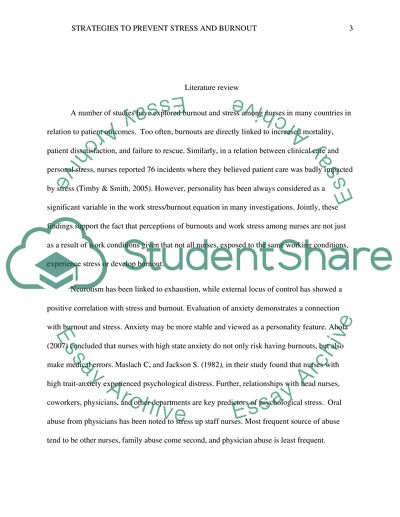Cite this document
(“Strategies to prevent Stress & Burnout in Nursing Research Paper”, n.d.)
Retrieved from https://studentshare.org/nursing/1475823-scholarly-paper-strategies-to-prevent-stress
Retrieved from https://studentshare.org/nursing/1475823-scholarly-paper-strategies-to-prevent-stress
(Strategies to Prevent Stress & Burnout in Nursing Research Paper)
https://studentshare.org/nursing/1475823-scholarly-paper-strategies-to-prevent-stress.
https://studentshare.org/nursing/1475823-scholarly-paper-strategies-to-prevent-stress.
“Strategies to Prevent Stress & Burnout in Nursing Research Paper”, n.d. https://studentshare.org/nursing/1475823-scholarly-paper-strategies-to-prevent-stress.


